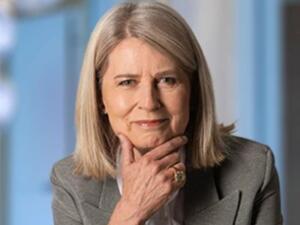European court cancels Biogen’s extended market exclusivity for Tecfidera
The European General Court has ruled it is several weeks too late to extend market exclusivity for Biogen's MS drug Tecfidera by one year. The judgment marks a defeat for both Biogen and the European Commission's deadline practices. However, it remains unclear whether generics manufacturers can benefit directly through damages or only in future cases.
30 September 2025 by Christina Schulze
In addition to the parallel patent disputes pending in several European countries concerning Biogen’s multiple sclerosis drug Tecfidera, the company is also battling over marketing authorisation.
The European General Court has now overturned a European Commission decision that favoured extending market exclusivity. The new ruling establishes that deadlines must be taken seriously and that the European Commission cannot extend them by citing arguments such as case complexity.
Strict interpretation of deadlines
Last week, the General Court ruled on time limits for extending market exclusivity. Article 14(11) of Regulation 726/2004 allows an extension from ten to eleven years only under strict conditions. Authorities must approve a new therapeutic indication within eight years of the original authorisation.
The General Court designated case T-256/23 as a pilot case, holding an oral hearing on 10 December 2024. The chamber expanded its bench from three to five judges, including the vice president. On the same day as the current ruling, the court delivered nearly identical decisions in several related cases. These included cases T-257/23, T-258/23, T-278/23, T-299/23, T-309/23, T-351/23, and T-393/23.
The court ruled that the eight-year time limit in Article 14(11) is strict and that the Commission has no discretion to disapply it. The European Commission had argued that the case’s complexity required a longer time limit. The General Court rejected this practice, holding that generic drug manufacturers need clarity on when they can enter the market.
Extension overturned
Meanwhile, Biogen continues to fight for market exclusivity in numerous European countries, including Germany, the Netherlands and France, through PI proceedings.
The disputes concern the formulation patent EP 2 653 873, which protects a pharmaceutical composition comprising dimethyl fumarate or monomethyl fumarate, plus one or more pharmaceutically acceptable excipients. The formulation, administered in a 480mg daily dose now forms the basis of Tecfidera. Different assessments of the patent’s validity come into play.
The General Court overturned Commission Implementing Decision C(2023) 3067 (final) of 2 May 2023 amending the marketing authorisation for the medicinal product for human use “Tecfidera – dimethyl fumarate” granted by Decision C(2014) 601 (final). This concerns the variation of marketing authorisation for Tecfidera under Directive 2001/83/EC – Article 14(11) of Regulation (EC) No 726/2004 – Article 266 TFEU.
Consequently, the General Court has effectively cancelled Biogen’s additional year of market protection. However, this additional year had already expired in February 2025. It remains unknown whether generics manufacturers such as Mylan or Viatris will now sue for damages.
The European Commission and Biogen can still appeal to the European Court of Justice. Parallel legal disputes concerning Mylan/Viatris’ initial marketing authorisation also continue.
Regular counsel on all sides
In case T-256/23, Mylan Ireland relied on lawyers Kristof Roox, Thomas de Meese, Jules Stuyck, and Christopher Dumont. The team from Brussels law firm Crowell regularly advises Mylan and Viatris, particularly on marketing authorisation and patent law matters.
- Kristof Roox
- Carla Schoonderbeek
In-house lawyers Luke Haasbeek, Edwige Mathieu, and Alessandro Spina represented the European Commission. Lawyers Carla Schoonderbeek and Bart Jong from Arnold & Porter represented intervener Biogen Netherlands.
The court ruled under president Savvas Papasavvas, judge rapporteur Ricardo da Silva Passos and judges Nina Półtorak, Inga Reine, and Tuula Pynnä.
For more details regarding the representatives, background and judgments in the patent disputes in Germany, France and at the EPO, please see our previous article.

